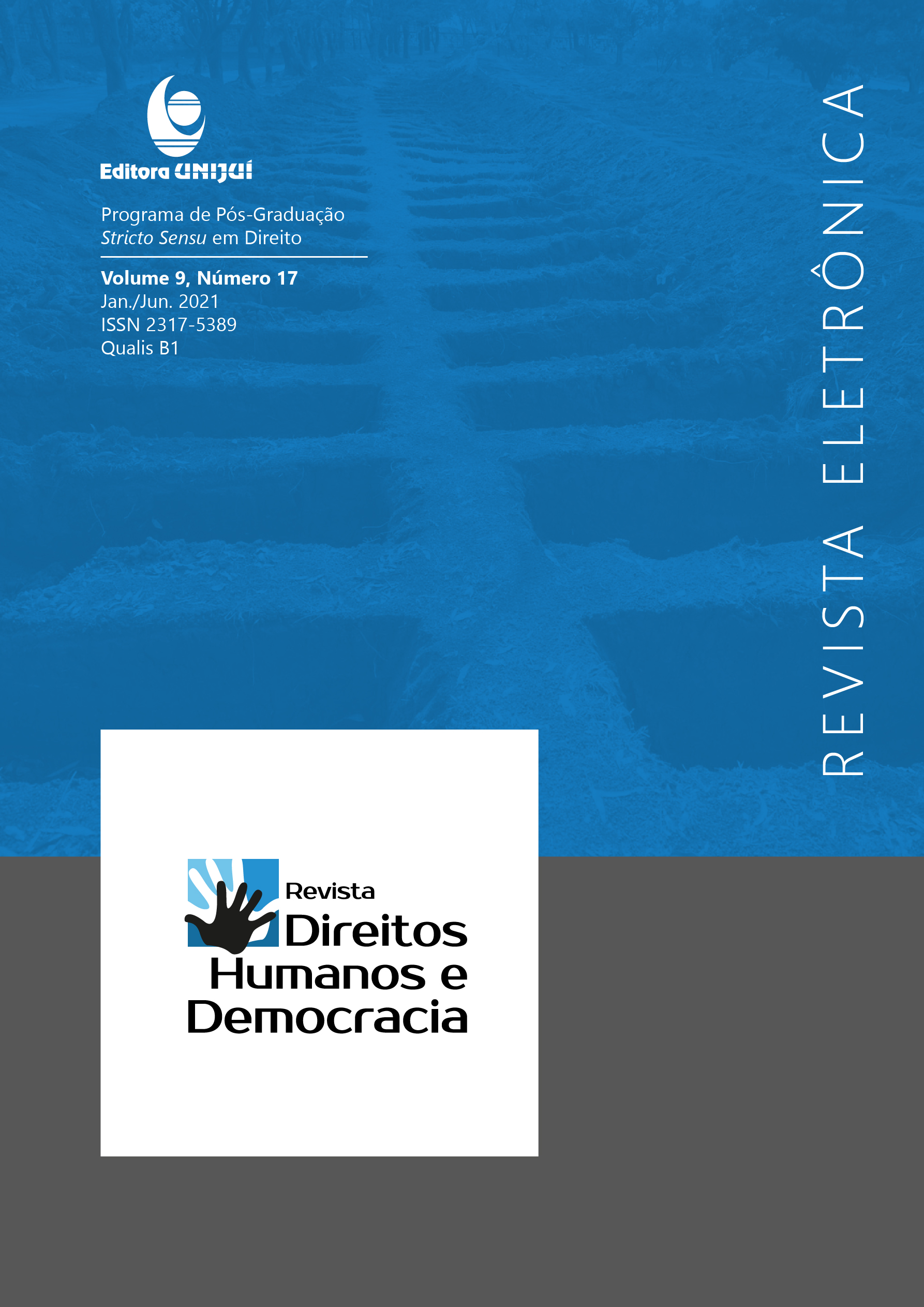Gender and Penal Execution
The invisibility of imprisoned trangender men as an offense to Human Rights
DOI:
https://doi.org/10.21527/2317-5389.2021.17.9237Keywords:
Penal Execution, Human Rights, Gender, Imprisoned Trangender MenAbstract
This article proposes to analyze how the Penal Execution deals with the demands and specificities of imprisoned transsexual men, since the prison system, designed and constructed according to a rigid heteronormative binarity, fails to meet the new demands, especially those related to gender identities. In this sense, we intend to investigate how the jail and its structure are still used as a form of disciplinarization that directly affects the bodies and how the sexualities and gender considered as disoriented would also be affected by a docilization practice. The research will make use of an interdisciplinary methodology, through a survey of bibliographical sources, merging works of authors of the pen and criminal execution and the theme of gender, highlighting, at that moment, Judith Butler. The historical-dialectical method will be adopted under a qualitative approach with the descriptive-exploratory objective. The article limits itself to studying trans men in jail because of the peculiarities that surround them. Not considering the individualities of these people as a constitutional right is a serious offense against Human Rights.
Downloads
Published
How to Cite
Issue
Section
License
By publishing in the Revista Direitos Humanos e Democracia, authors agree to the following terms:
Articles are licensed under the Creative Commons Atribuição 4.0 Internacional (CC BY 4.0), which allows:
Share — copy and redistribute the material in any medium or format;
Adapt — remix, transform, and build upon the material for any purpose, including commercial use.
These permissions are irrevocable, provided the following terms are respected:
Attribution — authors must be properly credited, with a link to the license and indication of any modifications made;
No additional restrictions — no legal or technological measures may be applied that restrict the use permitted by the license.
Notices:
The license does not apply to elements in the public domain or covered by legal exceptions.
The license does not grant all rights required for specific uses (e.g., image rights, privacy, or moral rights).
The journal is not responsible for opinions expressed in the articles, which remain the sole responsibility of the authors. The Editor, with the support of the Editorial Committee, reserves the right to suggest or request modifications when necessary.
Only original scientific articles presenting research results of interest, not previously published or simultaneously submitted to another journal with the same purpose, will be accepted.
References to trademarks or specific products are intended solely for identification purposes and do not imply any promotional endorsement by the authors or the journal.
License Agreement: Authors retain copyright over their articles and grant the Revista Direitos Humanos e Democracia the right of first publication.













